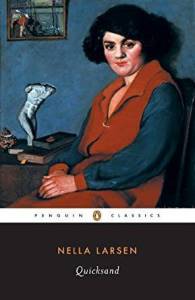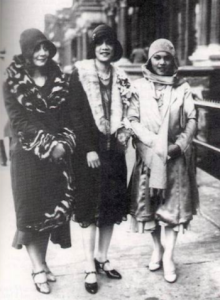Yellowface is a satirical novel about the publishing industry and cultural appropriation, by the New York Times bestselling author R.F. Kuang who wrote the equally popular, ambitious novel about the British Empire Babel.
Being so popular, I had seen it pop up in many bookish places, but what made me get a copy and find out for myself was listening to writer and journalist Afua Hirsch’s one minute description of it here. Her commentary is so interesting, I share part of it below.
Afua Hirsch created the podcast We Need to Talk About the British Empire where she talked to six different people about their family history and education, in the context of the British Empire and colonisation.
Literary Opportunity or Cultural Theft
Yellowface is a fascinating look into the game of being a published writer, the universe of social media, the dangers of cultural appropriation, cancel culture, revenge and who can get away with things and who can not.
Two women, June Hayward and Athena Liu, who knew each other while at university, who may or may not have been close, are now launched into their adult lives as newly published writers, one a rising star, the other fast becoming a nobody.
It is a kind of psychological thriller, as June capitalises on the death of her friend, rebranding herself to take advantage of what she is planning to do. To steal her friend’s unpublished work. But can someone who has none of the life experience of their protagonist or witness to the testimony of people interviewed, get away with convincing readers of the authenticity of their work?
“Quirky, aloof and erudite” is Athena’s brand. “Commercial, and compulsively readable yet still exquisitely literary,” I’ve decided, will be mine.
Authorial Projection or Authentic Voice
Ironically, the one thing that doesn’t ring true is the main protagonist, a white girl appropriating her Asian friend’s work and passing it off as her own. Kuang writes from this perspective, a role she is required to step into, and perhaps because we can see she is not that, it felt a little like acting. Therein lies the point, that the only way to be authentic is to be authentic.
Of course, I have my detractors. The more popular a book becomes, the more popular it becomes to hate on said book, which is why revulsion for Rupi Kaur’s poetry has become a millennial personality trait. The majority of my reviews on Goodreads are five stars, but the one-star reviews are vitriolic. Uninspired colonizer trash, one reads. Another iteration of the white woman exploitation sob story formula: copy, paste, change the names, and voila, bestseller, reads another.
A riveting read, if you’re prepared to follow the paranoid delusions of a writer playing a risky game, but along the way we learn all about the world that certain writers aspire to, that of traditional publishing and the very capitalist desire to overcome all obstacles in pursuit of profit, with little regard for the exploitation of other cultures, the dead and vulnerable.
Have you read Babel or Yellowface?
Further Reading
The Guardian: Yellowface by Rebecca F Kuang – a wickedly funny publishing thriller
New York Times: Yellowface review: Her Novel Became a Bestseller. The Trouble: She Didn’t Write It.
Author, R. F. Kuang
Rebecca F. Kuang is the #1 New York Times and #1 Sunday Times bestselling author of the Poppy War trilogy, Babel: An Arcane History, Yellowface, and Katabasis (forthcoming). Her work has won the Nebula, Locus, Crawford, and British Book Awards.
A Marshall Scholar, she has an MPhil in Chinese Studies from Cambridge and an MSc in Contemporary Chinese Studies from Oxford. She is now pursuing a PhD in East Asian Languages and Literatures at Yale, where she studies Sinophone literature and Asian American literature.
Afua Hirsch on Reading Yellowface
It is the story of two young women, one of Chinese heritage, the other white, who become intertwined in a complicated way, and it’s really about, in my opinion, the reality of what happens when someone who does not have the lived experience of a character they are writing about, attempts to tell a story in that person’s world, but lacks the complexity, the perspective and the humility to know that there is an integrity to that experience that they don’t share and the result is something problematic, no matter how much research that person has done.
I relate to that and I think that my position on cultural appropriation is that we shouldn’t police the stories we can tell, but if you are going to tell the story of somebody whose life and perspective and truth is very different to yours, you better be prepared to acknowledge what you don’t know and ask yourself hard questions about whether you can do justice to that story.
The character in this book doesn’t and it is a great morality tale of what happens when somebody who doesn’t have that credibility insists on taking up space.
I also think this book is a metaphor for something deeper about western cultures and how they have been predatory for centuries, not just the land and the resources of other people, which we talk about a lot in the history of colonisation, but the intellectual property, the ideas, the art, the genius, the innovation of other cultures. Afua Hirsch



 Book Review
Book Review Irene has strong and angry thoughts on Claire’s predicament, but in her presence is unable to act in accordance with them. She is stuck between loyalty to her race and guilt at her ability to pass for the thing that so oppresses them.
Irene has strong and angry thoughts on Claire’s predicament, but in her presence is unable to act in accordance with them. She is stuck between loyalty to her race and guilt at her ability to pass for the thing that so oppresses them.